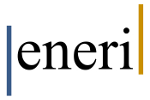First publication from ENRIO: Recommendations for the Investigation of Research Misconduct
First publication from ENRIO: Recommendations for the Investigation of Research Misconduct
by Torkild Vinther
Chair of the ENRIO working group on Investigation &
Chair Commission for Research Integrity, LARI (Luxemburg Agency for Research Integrity)
How should research misconduct be defined and how will it differ from unacceptable research practices? How should allegations be handled? What if an allegation involves several institutions and/or researchers in different countries? Why is it important to have a formal Research Integrity system in each European country to deal with research misconduct and is there any best model? Where should countries with no RI structures start? Should responsibility be local or national? What about openness and transparency versus confidentiality when dealing with possible misconduct cases?
These are among the questions or issues a working group, consisting of ENRIO members from some twenty countries, has been discussing during several ENRIO meetings. The working group concluded at an early stage that there is no one model or system that fits all circumstances as the situation is very different across Europe. Still there is room and need for soft harmonization.
The publication is called a Handbook. It is a kind of consensus document although representing different views on different topics reflecting a diversified European picture when it comes to experiences and lessons learned. How can we learn from each other? The Handbook has a set of “practical step by step” recommendations or things to consider when dealing with possible research misconduct or unaccepted practices. It is the presumption that such recommendations will be especially important for countries who, for different reasons, are struggling with setting up a uniform and robust system for dealing with research misconduct or integrity but hopefully it will also serve as a basis for discussions and considerations in countries with established RI structures be it on a local and/or national level.
Time will show whether such a Handbook is really needed. If so, it will of course have to be revised over time to remain aligned with future developments within European countries and across the constant changing field of research integrity.
 The development of the Handbook was financed by the Horizon 2020 project ENERI (European Network of Research Ethics and Research Integrity) under the Grant agreement Nr. 710184.
The development of the Handbook was financed by the Horizon 2020 project ENERI (European Network of Research Ethics and Research Integrity) under the Grant agreement Nr. 710184.
ENRIO Handbook Recommendations for the Investigation of Research Misconduct
